Media | Articles
18 of the coolest factory hood scoops
Lots of cars look their best when they’re prepped for racing: lowered, stripped down, and bristling with widgets that cheat and channel the air. Naturally, auto designers love to bring some of those racing accents into the showroom, and one of our favorite styling elements that’s trickled down from the tarmac is the hood scoop. We’re not going to mention NACA ducts here—we already covered those in their own article. Instead, we wanted to show off our favorite factory hood scoops, which often don’t mind disrupting the car’s lines to feed a hungry engine.
We awarded bonus points to the functional ones, but we’re going to highlight some of the coolest examples, whether they help the engine breathe or not. Here they are, in roughly chronological order.
1955–57 Ford Thunderbird
This understated scoop is one of the first production scoops that was actually intended to be functional. A plate on the underside of the hood was removable and allowed the scoop to flow, helping the T-bird’s engine to breathe in the warmer summer months. Its efficacy is debatable, but it sure looked good!
1958 Ford
Creating a simulated inlet by removing more metal rather than it added, the scoop at the leading edge of the 1958 Ford managed to hint at the performance potential of the Y-block V-8 under the hood without disrupting the car’s clean lines.
1963 Plymouth factory lightweight
Plymouth was serious about Super Stock drag racing in the early ’60s and was duking it out with 409 Chevys and 421 Pontiacs using its 426 Max Wedge engine and the lightest cars that would fit them. The hood scoops on these factory drag racers were functional and each included a center post help prevent flex at speed. You know this car means business!
Marketplace
Buy and sell classics with confidence
1967 big-block Corvette
The Sting Ray’s “stinger” scoop is one of the most recognizable hoods ever used on the Corvette. It was the original L88 hood before the C3 showed up and changed what “L88 hood” meant. That center stinger leading into a wide, subtle scoop had a suggestion of a jet intake—appropriate, considering Chevy’s “Turbo-Jet” engine nomenclature—and gave the Corvette room to fit a taller Chevy big-block V-8 with a mid-rise dual-plane intake. Baldwin-Motion Camaros also employed the stinger scoop and it looked almost as good on the first-gen F-body as it did the ’67 Sting Ray.
Pontiac Ram Air
There have been plenty of iterations of Pontiac’s Ram Air, from the mid-’60s to the final Trans Ams in 2002. Some were reminiscent of the Olds W-25 that we’ll show later, but our favorites are the twin nostrils that were used on the A- and F-bodies in the late ’60s and returned for the final LS1-powered Trans Ams.
Mustang Mach 1
Few Mustangs are more recognizable than the ’69 and ’70 Mustang Mach 1, due in part to their wonderful Sportsroof lines and proud matte-black shaker scoops. The scoop on this ’70 model touts that it’s linked to a Cobra Jet V-8. Sadly, the 2021 Mustang Mach 1 ditched the shaker scoop tradition. We’ll forgive the modern version, though, because it packs 480 horsepower.
1969 Dodge Super Bee 440 Six Pack/Plymouth Road Runner 440 Six-Barrel
From colors to graphics, Mopar went big with its muscle car styling. Of course, it went all-in with hood scoops as well. One of our favorites is the intimidatingly large scoop found on the ’69 Super Bee equipped with the 440 Six Pack and its Plymouth cousin with the 440 Six-Barrel. The triple-carb induction system can fit without the scoop, but why not show off one of the coolest muscle car powertrains and brag a little while you’re at it?
1970–72 Oldsmobile 4-4-2 W25
Oldsmobile’s W-25 option added a functional cold air induction hood with wide scoops that channeled air into the air cleaner. Despite being relatively low-profile, it has a menacing look that warns onlookers of what’s lurking under the hood.
Mopar shaker hood
This twin-nostril shaker scoop topped 340s and 426 Hemis alike. Here you can see it on a ’70 Challenger with the hood closed and on a ’71 Cuda with the hood popped. The interior “Shaker” decal made the letters look like they were dancing even when the car wasn’t running.
1970–72 Plymouth Air Grabber
Plymouth Road Runners and GTXs equipped with the “Air Grabber” induction system had one of the coolest hood scoops known to gearheads. A dash-mounted switch enabled the vacuum-operated scoop to open, allowing a more direct path for air into the engine while simultaneously revealing the shark-mouth decal. Childish? Perhaps. Fun? Absolutely!
1970–72 Chevelle cowl-induction
Cowl-induction uses the high-pressure air at the base of the windshield to help feed the engine, and ’70–72 Chevelles attempted to take advantage of this by adding an engine-vacuum-activated panel at the rear of the hood to rotate up and allow more air into the air cleaner.
Buick GS Stage 1 and Stage 2
Buick was supposed to be an understated luxury car, but the GS and GSX went toe-to-toe with the baddest factory muscle cars there were. Buick’s big-bore 455 had tremendous potential and the Stage 1 cars kept it close to the vest with a modest hood scoop. The Stage 2 cars threw subtlety out the window with a Mopar-like monster scoop. The scoop isn’t particularly stylish, and that’s part of the reason why we love it; it’s a functional scoop on top of one of the angriest big-blocks of the muscle car era, and it came from Buick, of all places!
1971–73 Mustang Mach 1
These “Clydesdale” Mustangs are overshadowed a bit by their earlier Sportsroof brethren, and it’s kind of hard to imagine that they’re the same generation as the original Mustang that launched for 1965, but these larger ponies are stylish in their own right and the Mach 1, in particular, looks great. The hood scoops on these Mach 1s resemble a split NACA duct and help give these Mustangs enough room for the 351 V-8 engine and its taller deck.
Trans Am shakers
The screaming phoenix hood graphic brings a lot of fanfare on its own, but the shaker hood scoop was with the second-gen Trans Am since the beginning in 1970, before the bird ever spread its wings.
1984–86 Mustang SVO
The hood scoop on the Fox-body Mustang SVO managed to be conspicuous without being gaudy. Underneath was a 2.3-liter, turbocharged and intercooled inline-four that delivered between 175 and 205 horsepower, similar to the 302 V-8 at the time.
1999–2004 Mustang GT
Redesigned “New Edge” Mustang GTs got this sharp scoop that straddled a shallow depression in the center of the hood. The contours are reminiscent of the original Mach 1’s shaker.
Challenger Hellcat
Dodge’s meanest, most powerful Hemi yet needed a scoop to match. The Challenger Demon later got a bigger scoop, and Hellcats evolved to get twin units, but we’re fans of this one, which trickled down to 392 Challengers. There’s a bit of the Corvette Stinger, a hint of NACA duct, and perhaps some SVO Mustang as well—but it still fits perfectly on the burly Challenger.
Ram TRX

Of course FCA would stuff one of its most powerful V-8s into a truck. And since we live in the 2020s, and not the 1990s or 2000s, the result was an off-road rather than a street truck. As much as we would have loved the return of an SRT pickup meant to haul on the street, we’re much more excited for the TRX to take desert running to another level. The demands of the supercharged 6.2-liter Hemi led Ram to give the TRX a functional hood scoop that also looks great.
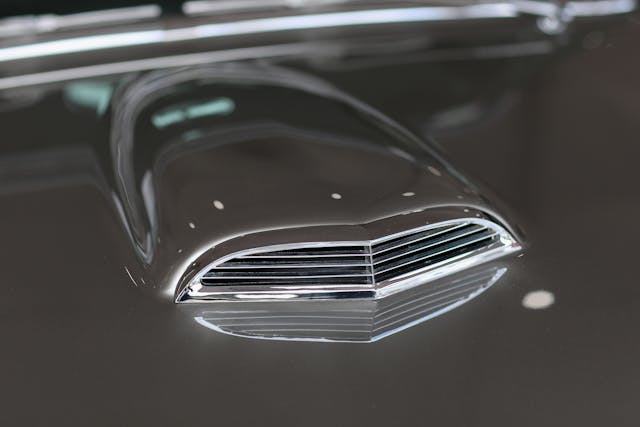
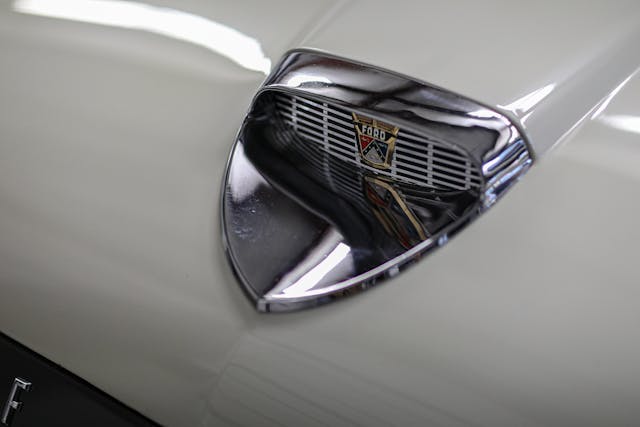
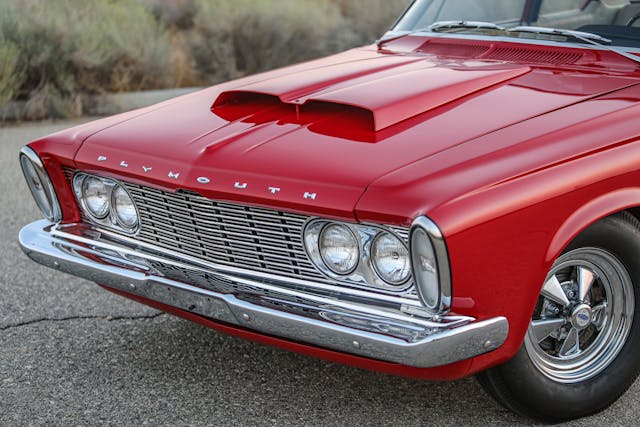
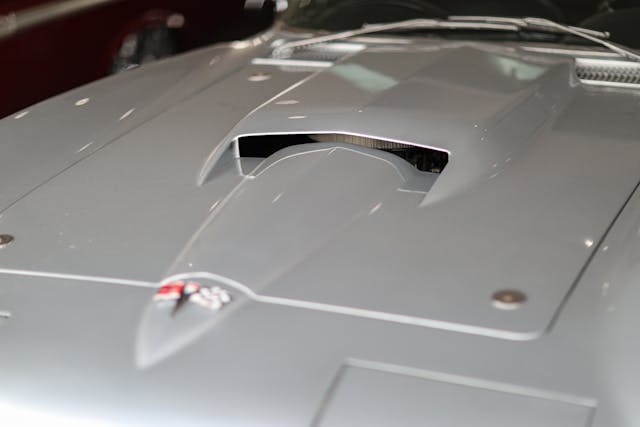
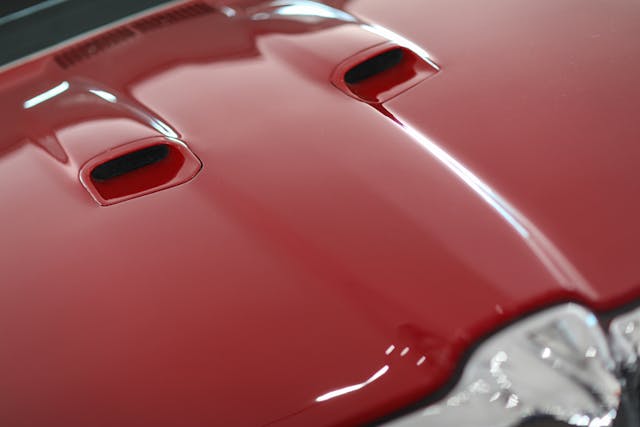
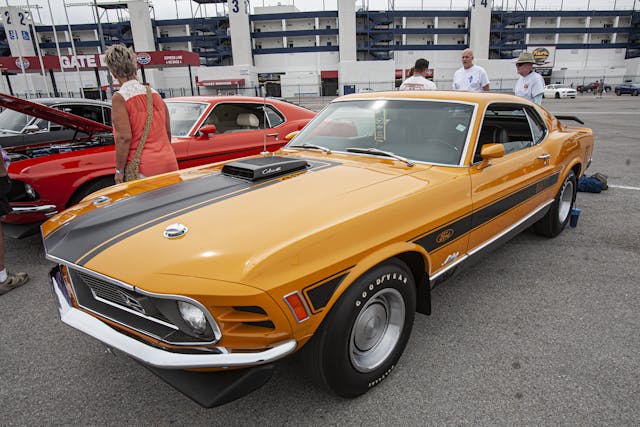
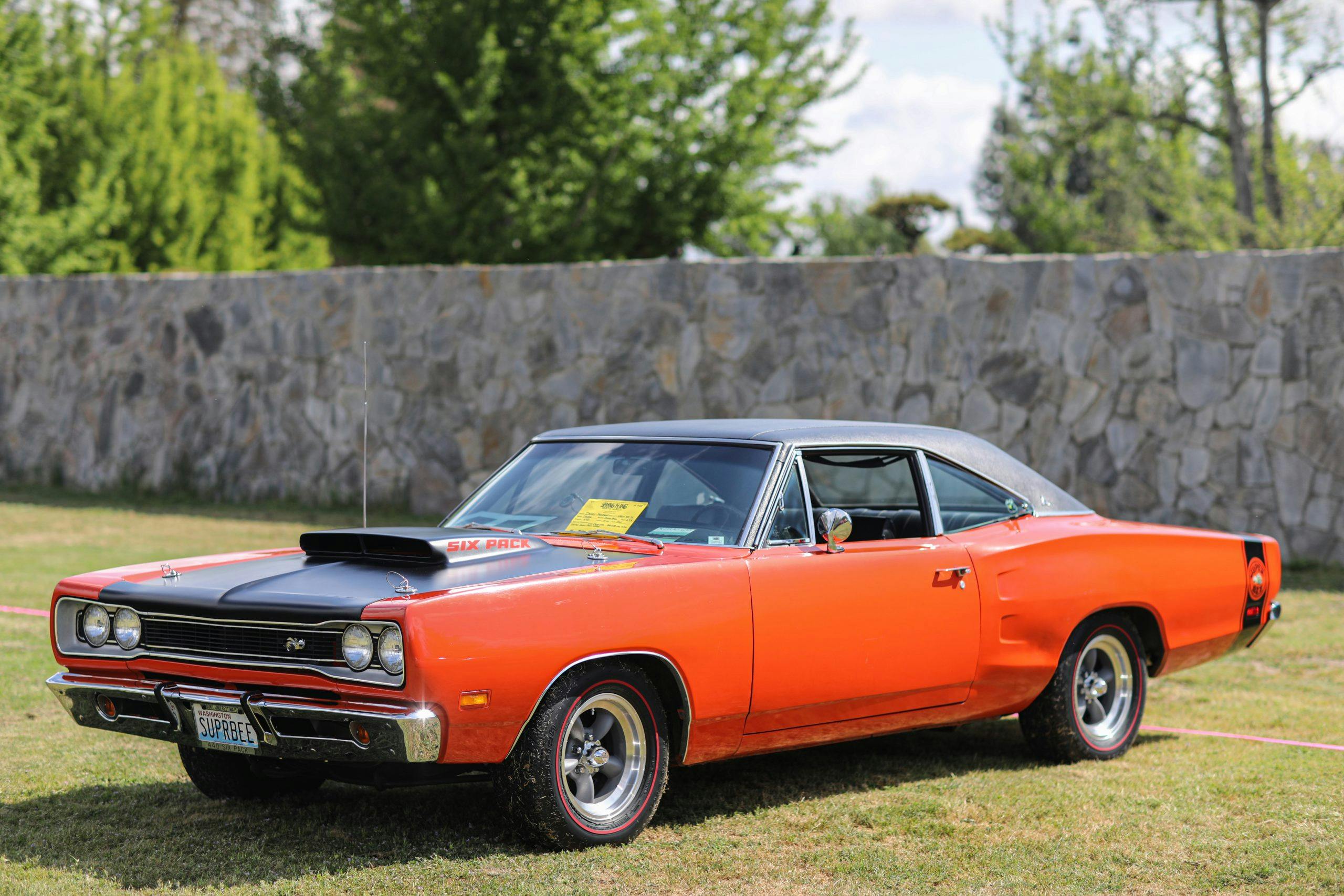
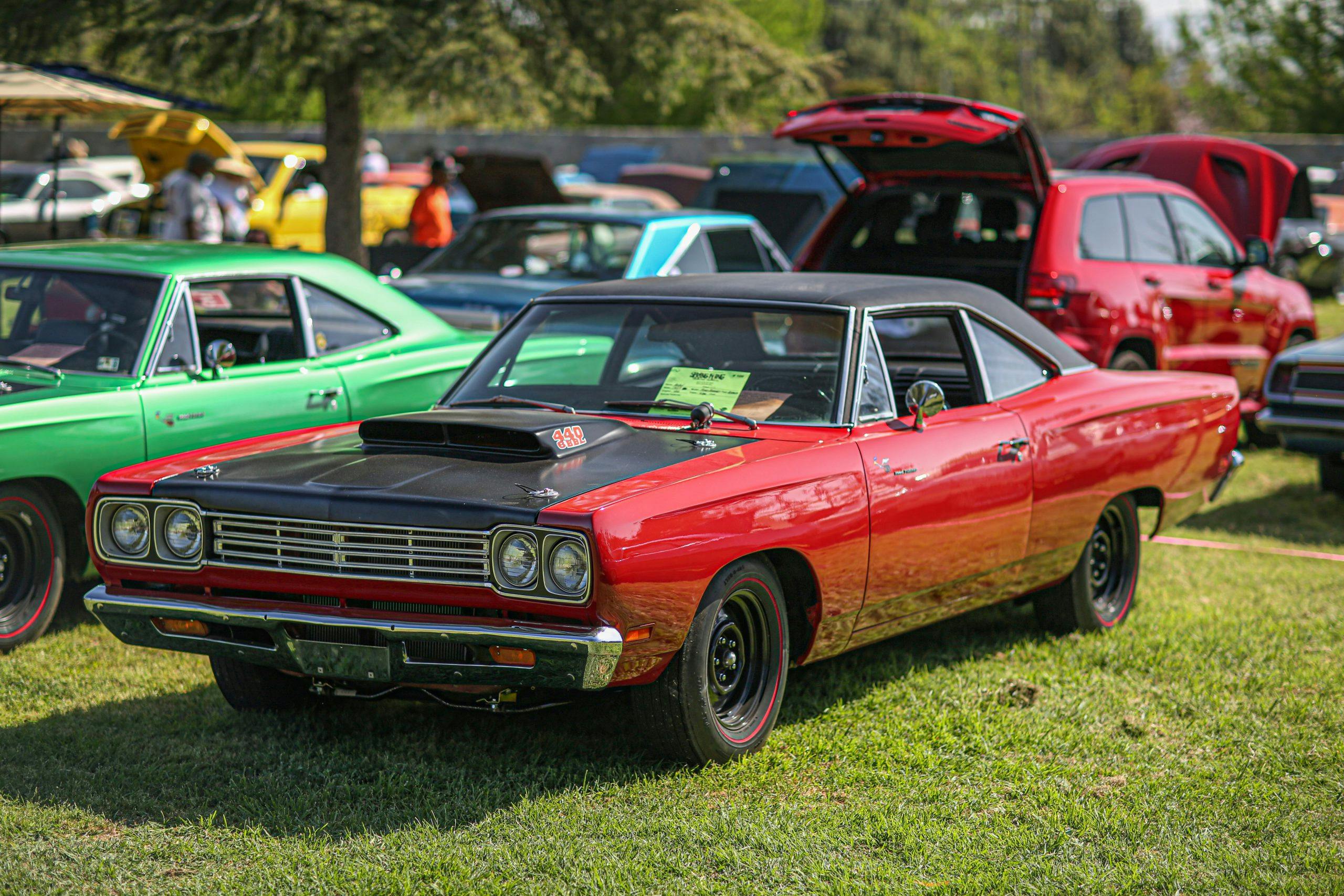
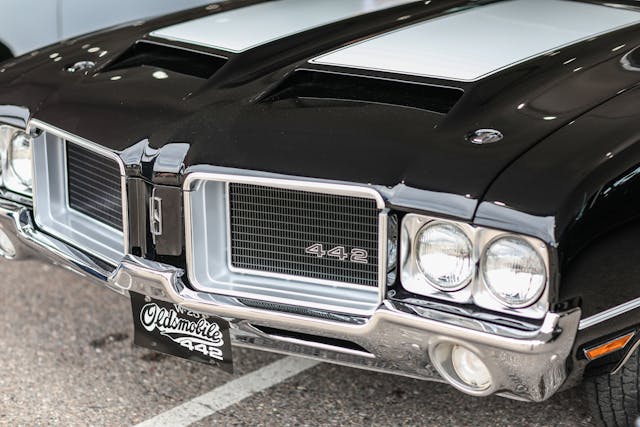
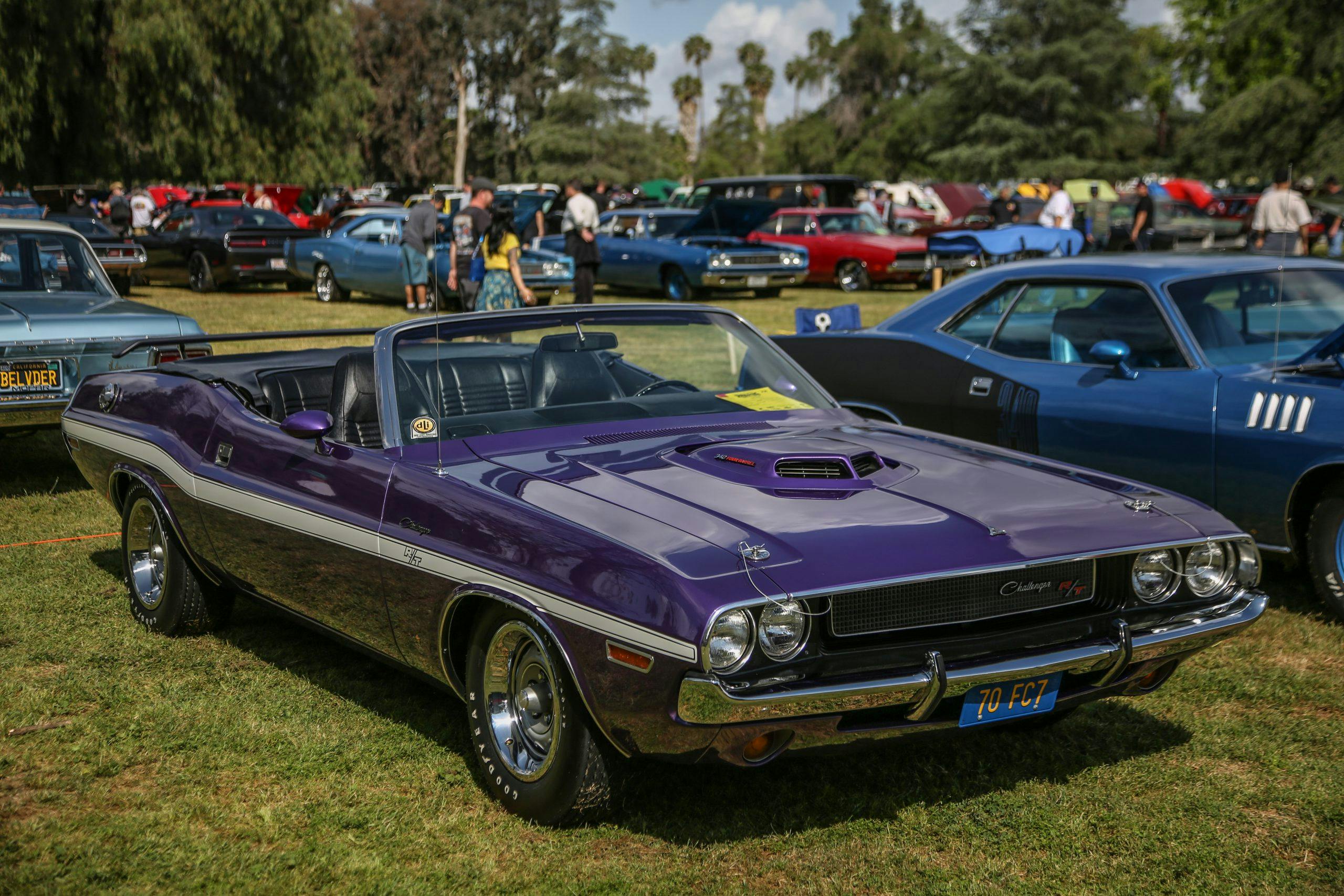
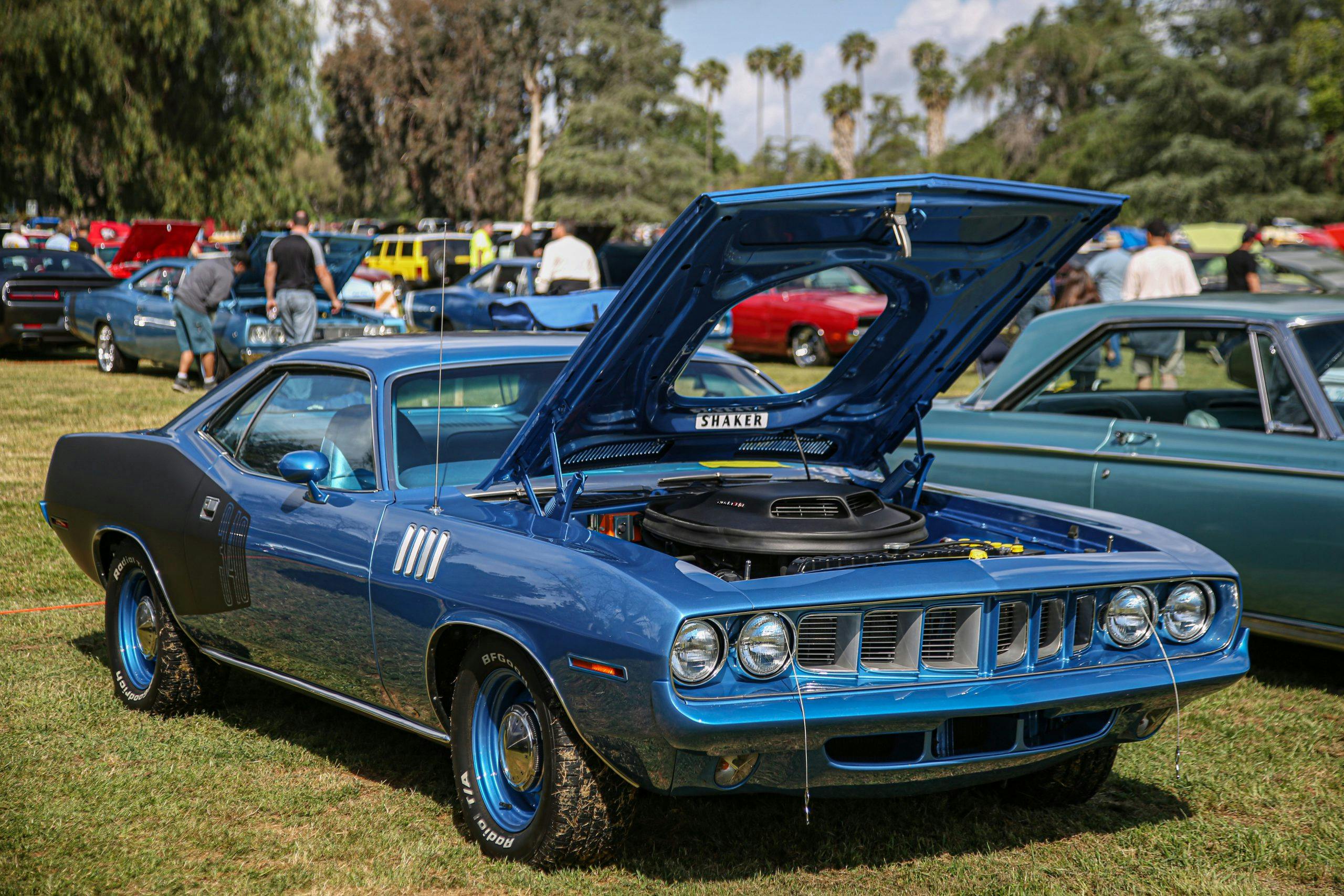
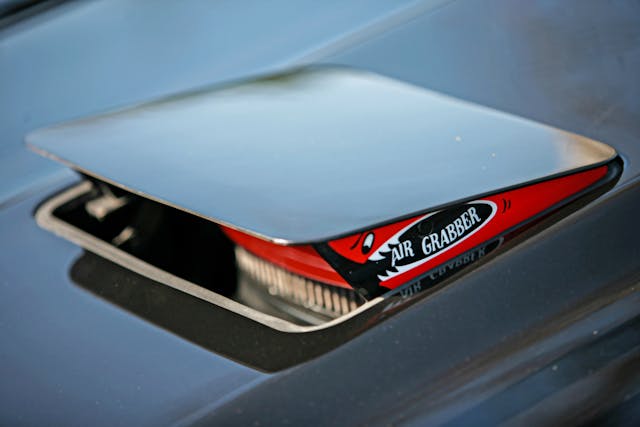
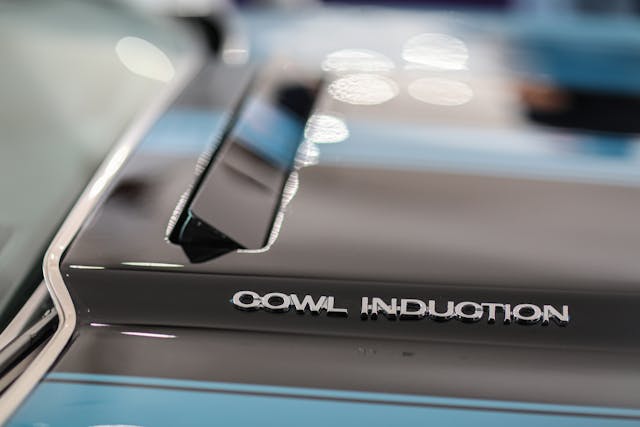
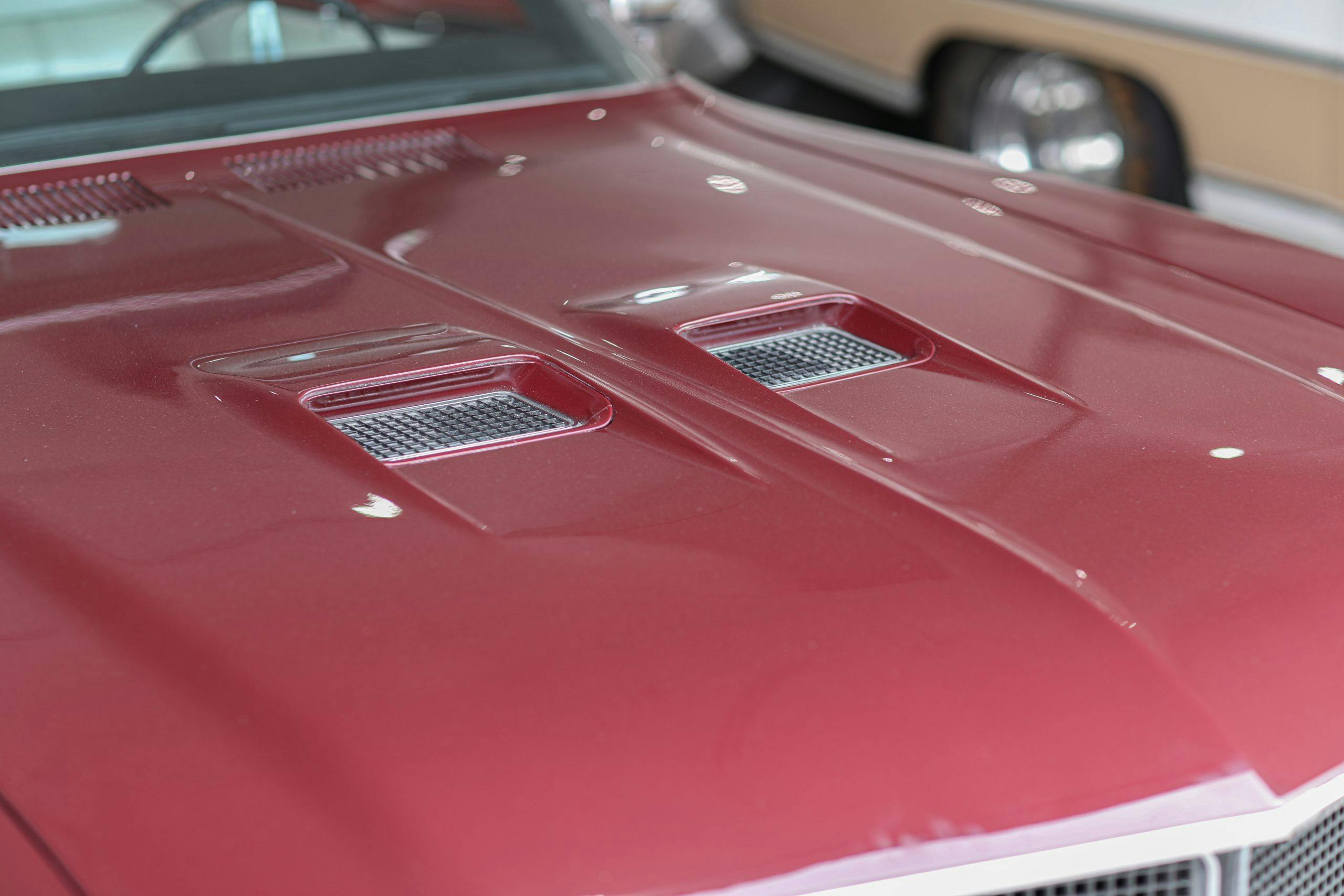
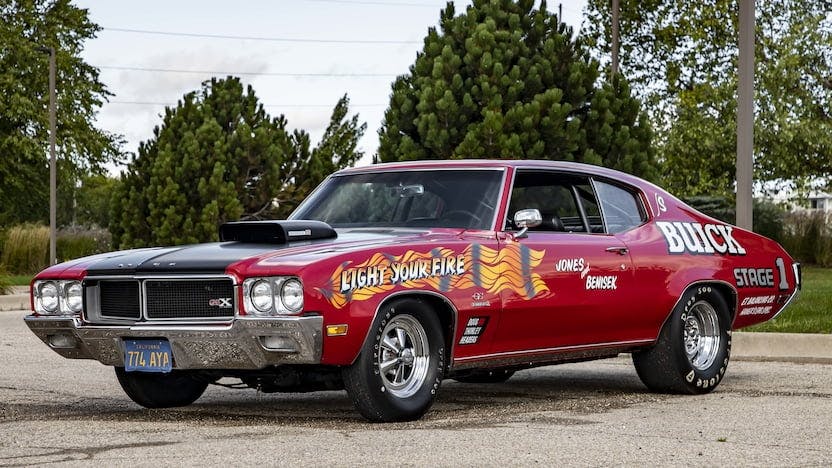
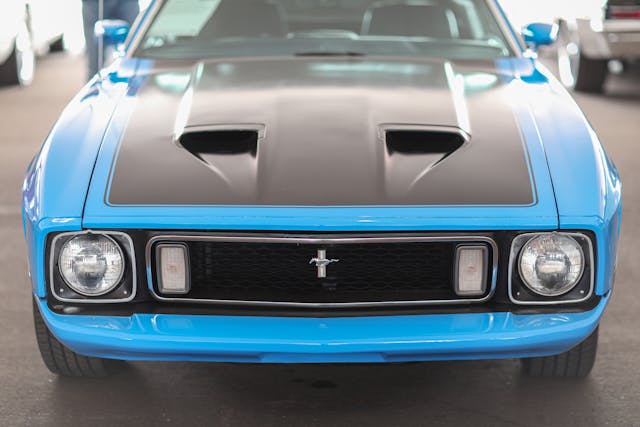
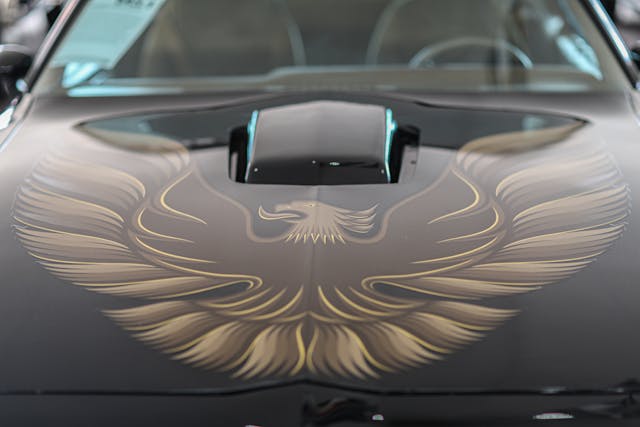
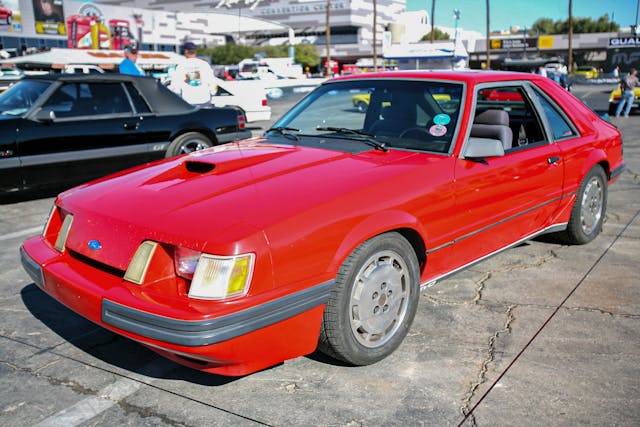
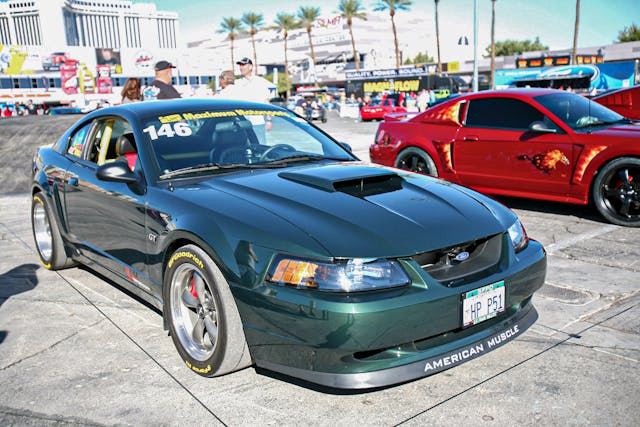
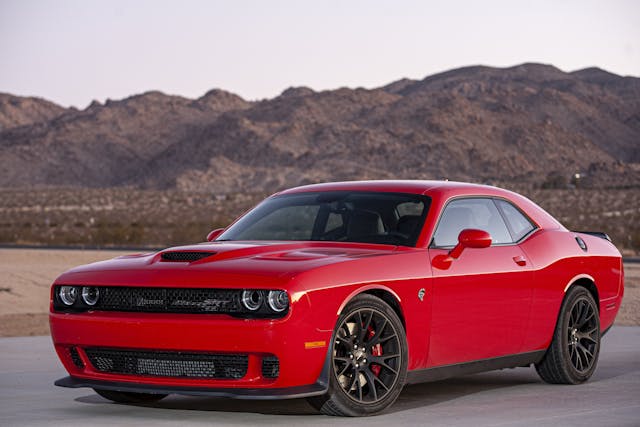







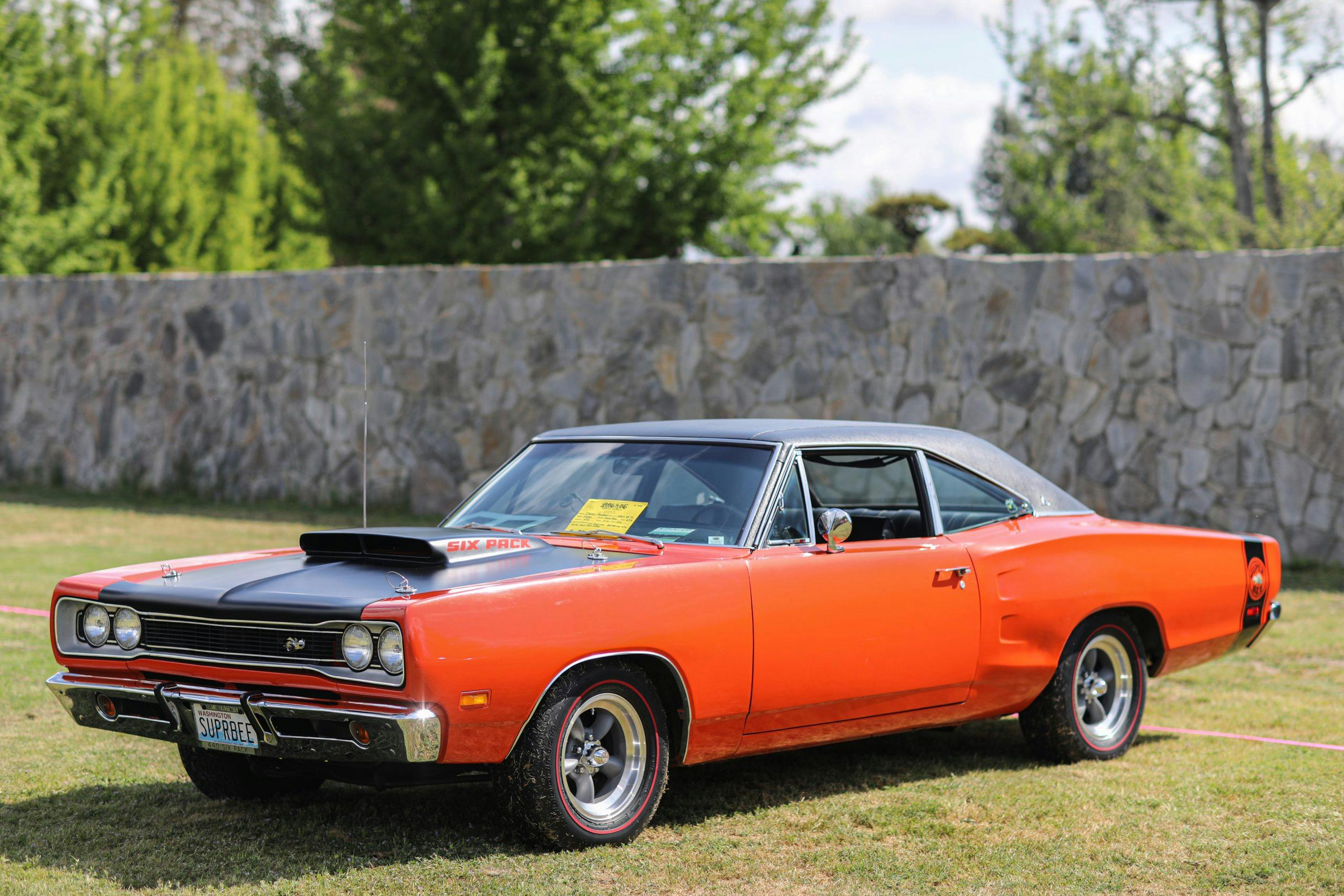












F-15 Eagle air scoops…1600mph. Nuff’ said.
Does the Mustang SVO scoop count? It did not feed the engine, it was sending air to the intercooler. Still a nice hood scoop.
Being an Oldsmobile guy the W 25 ram air hood option, really good looking and functional
Hemi Dart.
Having owned ’69 Dodge Six-Pack Dodges, I love the lift-off hood scoops pressed down on the air panel. When tuned for a radical cam, the entire hood would shake left/right, hitting/banging against the fenders. When you want to talk about “shaker hoods”, there is nothing more exciting than pulling up beside 390 Fairlanes or 396 Chevelles, and your hood is actually banging back and forth, fender to fender. “OOH-RAH”
The 66-67 Fairlane 427 scoop. Huge! And intimidating.
1972 Grand Torino Sport.
I have to say that I’m extremely prejudiced. Owning a ’69 Dodge SuperBee Six-Pack, I learned about the original “Shaker Hood”. After a lot of upgrades and rebuild of my original 440, I had a lot of “shakin”. The lift-off hood sat on the fresh air pan and, at idle, the hood would shake back and forth, left and right, banging into the fenders. I had a full hood “Shaker”. It discouraged many competitors. I also had to install a strap from my left head to the frame…Broken motor mounts. Loved that hood scoop!
Had the 70/SS 402 4spd.Chevelle functional cowl hood worked great!!!
Now the 63 falcon futura is tubbed set back 468 BBC and the big oval shaped pro stock hood scoop really delivers the air to the 1050 dominator carb